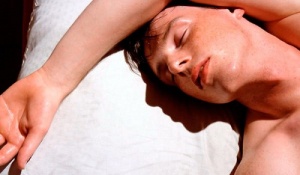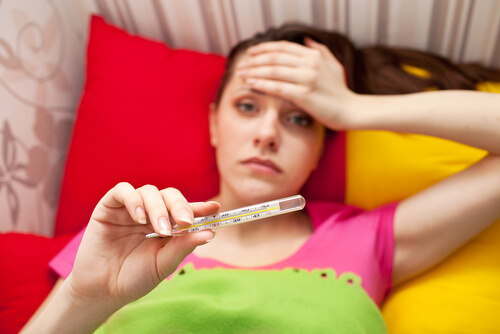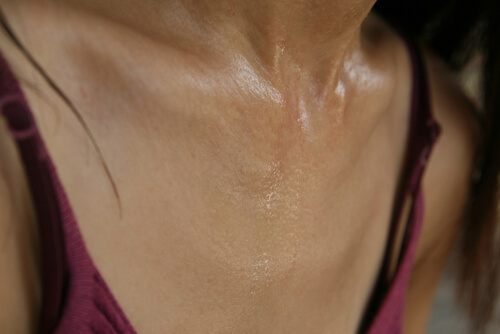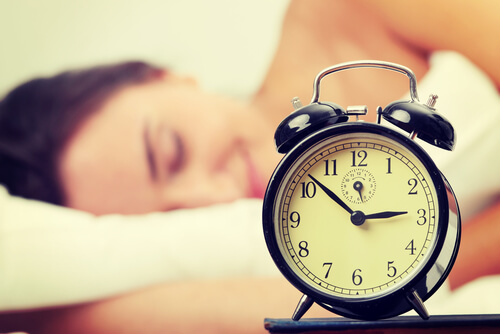Is it Normal to Sweat While You Sleep?

Sweat is the body’s natural cooling system, and it usually activates when you’re experiencing hot weather or during exercise. But there’s a time and a place for it. You expect to work up a sweat at the gym, but doing it in your sleep can be uncomfortable and even alarming. There are many things that might cause you to sweat in the night, and it’s good to be informed and know the symptoms. So, is it normal to sweat while you sleep?
Why do you sweat while you sleep?
No one wants to wake up in a pool of sweat in the middle of the night. There are a variety of factors to consider to figure out the cause. The first and most obvious is room temperature and the overall comfort level of the environment you sleep in.
Heat isn’t the only thing that can cause night sweats – humidity can also play a major role. Other potential causes are heavy blankets, warm pajamas, or the general discomfort of an old mattress or a noisy bedroom.
The next thing to take into account is your health. Have you recently changed your diet? Do you feel tired or fatigued? Fever is a common symptom of the flu, it’s the body’s natural response to an infection. Night sweats might happen for a night or two from a cold or fever, but if they continue beyond that there might be a more serious problem.

One of the most common causes of night sweats are hot flashes associated with menopause. They happen because of hormonal changes in the body. A sudden drop in estrogen production can cause a hormonal imbalance in the hypothalamus. That can then cause an instant spike of up to 6 degrees in a woman’s body temperature [source: Breastcancer.org].
Read more: 8 Symptoms of a Hormonal Imbalance You May Be Unaware Of
Men aren’t free from this condition. Men who have a testosterone deficiency or are taking drugs that block testosterone production may experience similar effects. Most men won’t admit that they’re having hot flashes, but androgen deprivation can definitely cause night sweats [source: Harvard Medical School].
What else could be making you sweat while you sleep?

Lots of prescription medications increase your heart rate and cause blood vessels at the surface of the skin to dilate, which results in excessive sweating. Antipyretics or drugs that reduce fever are the most common culprits.
A lot of people use aspirin or similar drugs when they have flu-like symptoms. These are effective for fever reduction, but they can also cause night sweats. Antidepressants can also cause this problem [source: American Academy of Family Physicians].
Infectious diseases like tuberculosis and AIDS are also known to cause night sweats. Having a persistent fever with night sweats is common in people who have tested positive for HIV. Hodgkin disease, a type of lymphoma, is another infectious disease that causes fever and intense nightly sweating.
Drinking alcohol in the evenings before bedtime could also be what’s causing you to sweat while you sleep. While a glass of wine can help you fall asleep, studies have shown that alcohol-induced sleep is less restful and makes you prone to headaches and night sweats [Source: American Academy of Family Physicians].
Another potential cause is spicy food. While you might not experience immediate discomfort during the meal, the digesting spicy foods can increase your body’s core temperature. Doctors have also found that caffeine consumption can worsen the problem in people who already sweat excessively [source: Emedicine].
Some people have a condition called hyperhidrosis, which causes frequent and excessive sweating day and night. If you’ve ruled out all of the other possible causes of night sweats, you might have this condition. Schedule an appointment with your doctor and talk to them talk about it [source: Mayo Clinic].
Natural solutions for night sweats

Temperature and stress
The first and most obvious solution here is to check the thermostat. Although most doctors recommend a temperature between 68 and 74 degrees Fahrenheit for sleeping, everyone is different and you should experiment to find the right temperature for you. If you sleep with a partner who prefers a warmer or cooler temperature, try adding several light layers of bedding [Source: WebMD].
Eliminating any possible causes of stress and anxiety is also very helpful. Nervousness and anxiety are common triggers of excessive sweating, whether during the day or at night. So, if you have a wedding or a job interview around the corner it’s perfectly normal for you to sweat a little more than usual. But you have trouble with night sweats several weeks after the big day, you should probably get a checkup.
You might be interested in: 7 Ways to Start Your Day Well and Fight Stress and Anxiety
Herbal remedies
Men dealing with night sweats associated with andropause (male menopause) can drink tea made with black cohosh, or take black cohosh supplements. This is a plant native to many parts of North America, with medicinal properties that are good for all kinds of conditions.
Red clover is another herbal remedy that can ease the intensity of hot flashes and night sweats, but studies have shown that it isn’t quite as effective as black cohosh [source: Pray].
Herbal remedies like sage and motherwort are a good way to deal with night sweats, for both men and women. Sage tea is helpful because it promotes relaxation and relieves stress. Motherwort, on the other hand, helps more directly with the sweating itself.
They both calm the nerves and improve the circulatory system functioning. This is important because those are potential causes for you to sweat while you sleep.
This text is provided for informational purposes only and does not replace consultation with a professional. If in doubt, consult your specialist.








